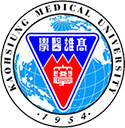– Kaohsiung Medical University Chung-Ho Memorial Hospital –
In response to the global wave of digital transformation driven by big data and artificial intelligence, Kaohsiung Medical University Chung-Ho Memorial Hospital (KMUH) successfully obtained the Stage 7 certification of the Healthcare Information and Management Systems Society (HIMSS) Electronic Medical Record Adoption Model (EMRAM) at the end of July 2025 — the highest level of international recognition in healthcare information systems.
This milestone makes KMUH the first hospital in southern Taiwan to receive this honor, symbolizing its excellence in clinical decision-making, patient engagement, and system integration. The achievement highlights KMUH’s leadership and exemplary role in digital healthcare transformation.
Six Strategic Pillars: Building a Resilient Hospital through Digital and Green Transformation
KMUH SuperintendentDr. Jaw-Yuan Wang stated that as a university-affiliated medical center, KMUH has continuously advanced its digital transformation journey. It achieved HIMSS EMRAM Stage 6 certification in 2023, received the 25th National Healthcare Quality Award “Smart Hospital Full-Organization Certification” in 2024. In 2025,KMUH was ranked 8th among Taiwan’s hospitals in the Newsweek–Statista “World’s Best Hospitals 2025” list.
Now, with the HIMSS EMRAM Stage 7 certification, KMUH stands as the only medical center in southern Taiwan to receive this global distinction — demonstrating its success in digital integration and clinical innovation.
Under the vision of “Future KMUH: Resilience PLUS”, the hospital is advancing six strategic pillars and twelve key strategic goals to deepen dual transformations in digitalization and green transformation. This certification is not only a milestone but also a stepping stone toward KMUH’s goal of becoming a global leader in smart healthcare.
From Technology-Oriented to Clinical Outcomes and Patient Engagement
The two-year certification process — encompassing project assessment, team integration, resource investment, and on-site validation — demonstrating KMUH’s rigorous commitment to transformation quality.
The EMRAM Stage 7 evaluation emphasizes clinical outcomes and patient engagement rather than technological implementation, highlighting the importance of using data to achieve tangible improvements in clinicalperformance and service quality.
KMUH presented three exemplary cases that received strong recognition from the review committee:
First, Dr. Chao-Wen Chen, Director of Trauma and Critical Care Surgery, and Dr. Yung-Sung Yeh, Director of the ICU, jointly promoted the “Streamlined Science of Trauma and Emergency Care Ecosystem.”By linking emergency and trauma data through a reporting platform. This integration breaks down data silos, streamlines emergency response, and allows ER teams to receive early alerts and prepare in advance — improving both treatment speed and data reuse.
Second, Dr. I-Ching Lin, Director of the Department of Laboratory Medicine, integrated cross-departmental processes to implement the “Optimization of Emergency STAT Test Turnaround Time (TAT)” project. For triage level 1 emergency patients, 97.7% of test results are completed within 23 minutes (compared to the national medical center average of 29.4 minutes). This improvement enables physicians to make faster, evidence-based treatment decisions.
Third, Dr. Chiu-Lan Yen, Director of the Department of Pharmacy, led pharmacists and clinical departments in launching the “Antithrombotic Drug Intelligent Decision Support System.”This AI-driven system helps clinicians accurately determine when to pause or resume anticoagulant medications during invasive procedures, reducing the risk of bleeding or thrombosiscomplications caused by inappropriate timing of medication adjustments.
These three innovations highlight KMUH’s commitment to enhancing patient safetyand optimizing workflows through cross-disciplinary collaboration.
During the on-site visit, the HIMSS review committee especially commended KMUH’s Smart ICU system developed by the Critical Care Medicine Center’s medical team.Through data integration and the application of artificial intelligence technologies, the system enables healthcare professionals to promptly detect changes in patients’ conditions, significantly enhancing the quality and efficiency of medical care, with remarkable results.
Focusing on Practical AI Applications to Build Intelligent Clinical Decision Support
Vice Superintendent Dr. Hung-Hsing Lu emphasized that KMUH has been actively advancing AI implementation, not only to enhance clinical decision-making but also to help address the shortage of healthcare manpower.
To date, KMUH has developed 39 AI models tailored to clinical needs, all of which are deployed across its hospital network. These tools assist healthcare professionals in making accurate judgments, improving treatment accuracy, and reducing medical errors — demonstrating the tangible benefits of smart healthcare.
Professor Ming-Ju Tsai, Secretary to the Superintendent’s Office and key leader of KMUH’s smart healthcare initiatives, noted that one of the major challenges in this process was effectively measuring Patient-Reported Outcome Measures (PROMs) through technology.
KMUH addressed this by developing a personalized health management app and an interactive online platform that integrate indicators, such as patient satisfaction, quality of life, functional status, and care experience. This approach enhances patient participation and feedback mechanism, truly embodying the spirit of patient-centered digital transformation.
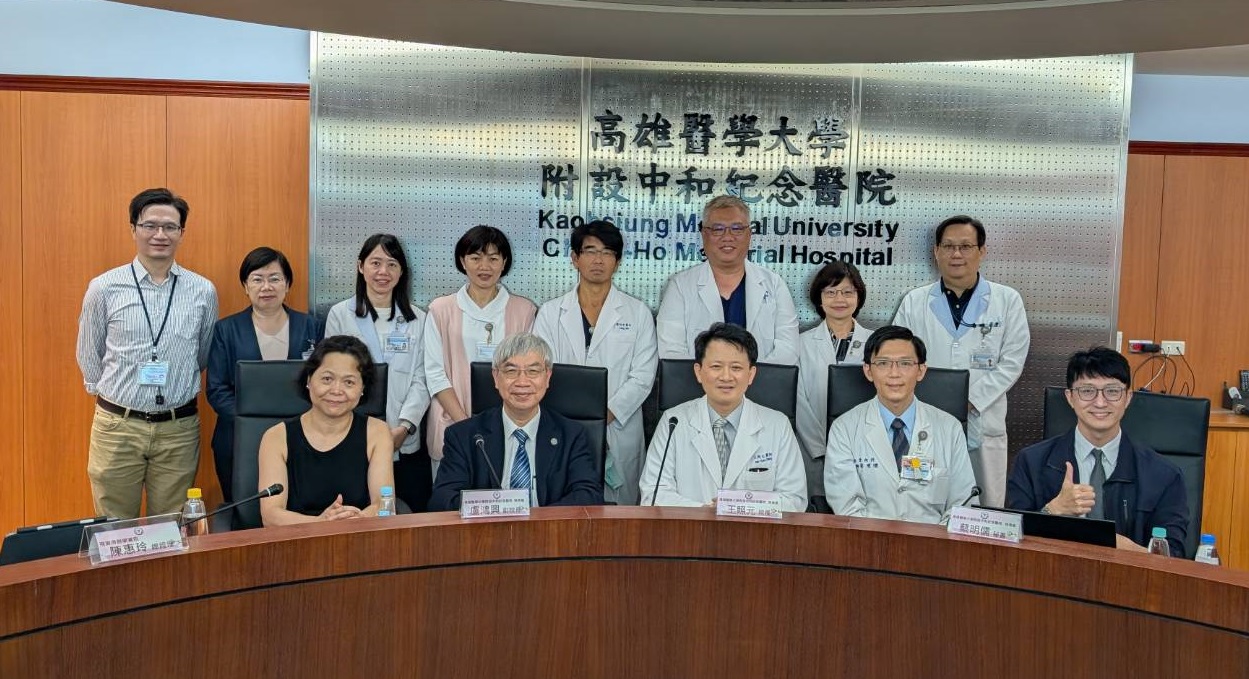
Southern Taiwan’s first! KMUH achieves the highest level of international recognition — HIMSS EMRAM Stage 7 certification from the United States.
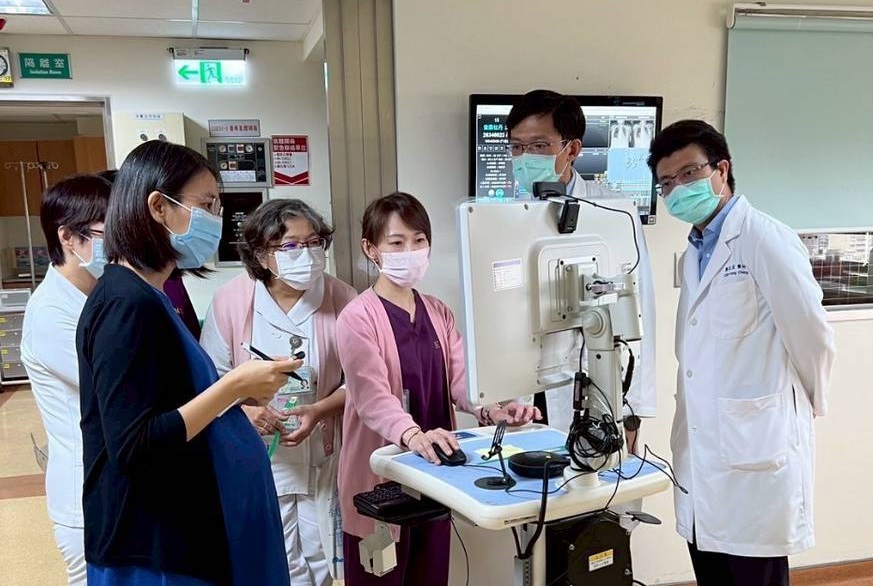
HIMSS EMRAM Stage 7review committee conducted on-site visit, commending KMUH for its cross-disciplinary teamwork that enhances patient safety and workflow optimization.

Through collaboration between the Trauma Surgery Department and the Intensive Care Unit, KMUH’s data integration platform enables real-time interdisciplinary communication, breaking down information silos.
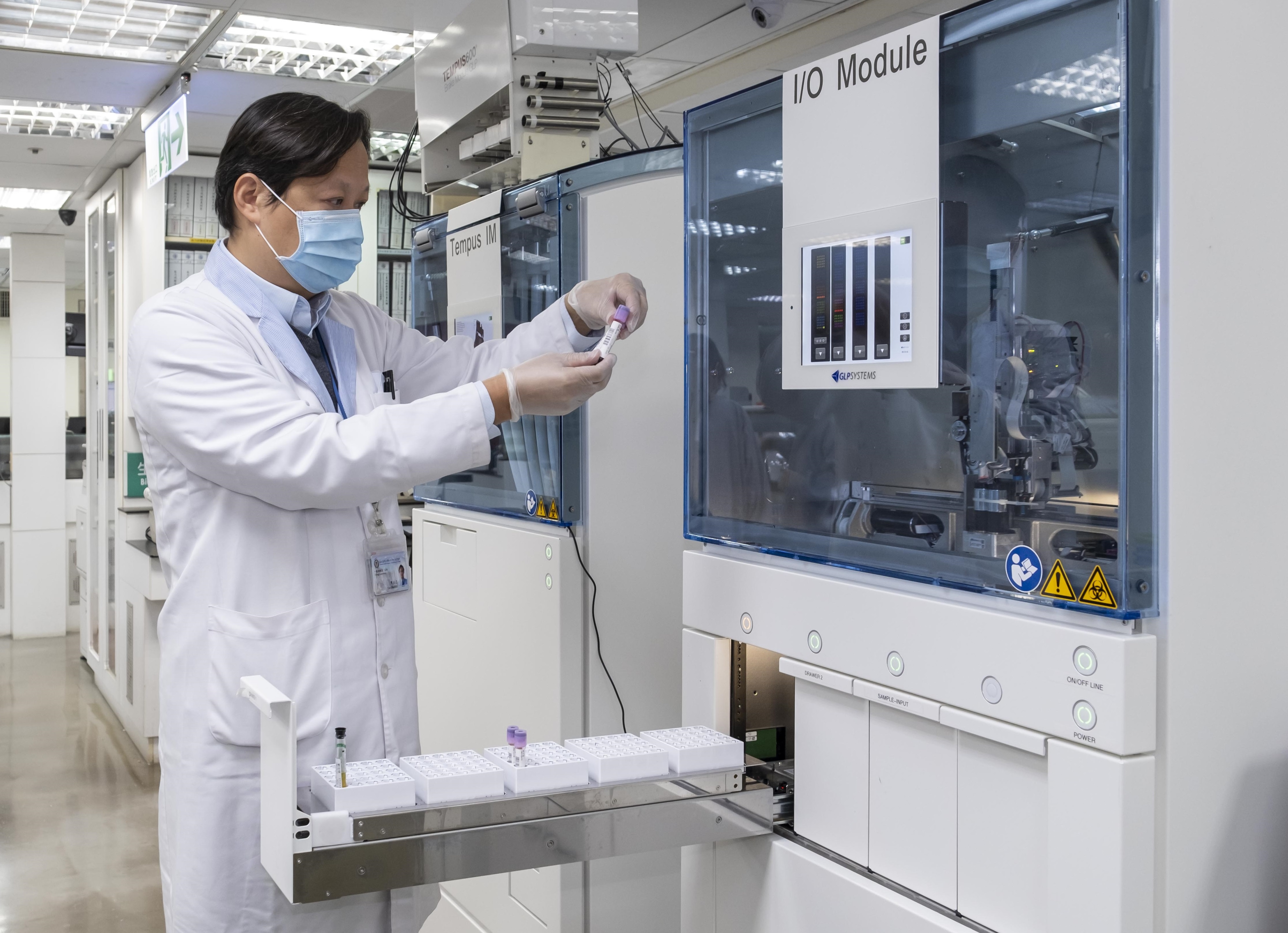
The Department of Laboratory Medicine at KMUH has optimized Emergency STAT Test Turnaround Time (TAT), enable rapid report fortriageLevel 1 emergency patients.
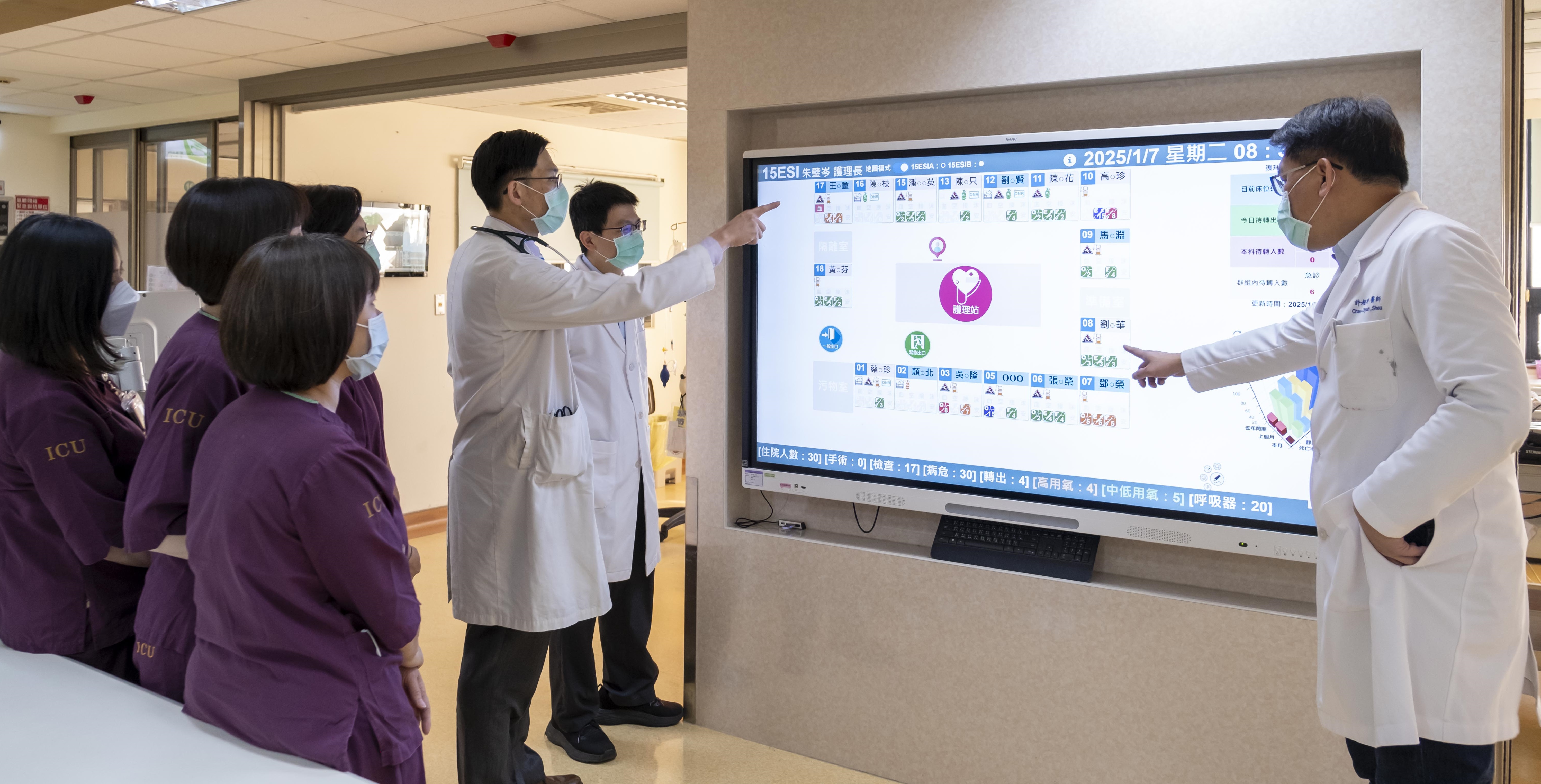
KMUH’s Smart ICU, powered by artificial intelligence, helps physicians more accurately predict patient outcomes and improve critical care precision.
